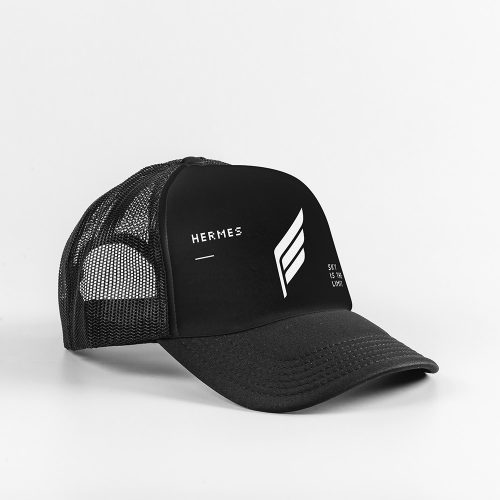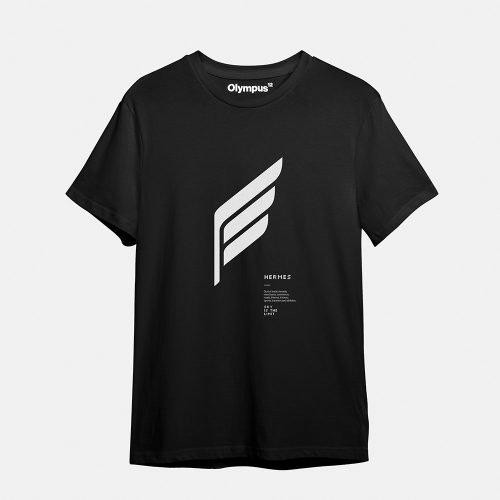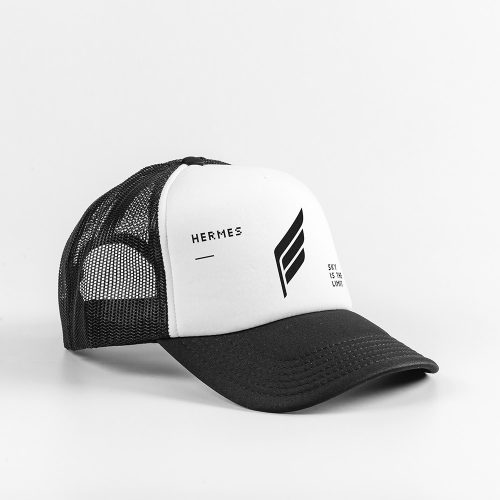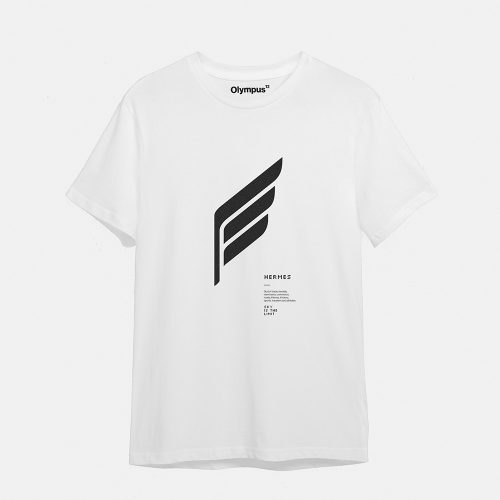Hermes is an Olympian deity in ancient Greek religion and mythology. Hermes is considered the herald of the gods. He is also considered the protector of human heralds, travellers, thieves,merchants, and orators.[5][6] He is able to move quickly and freely between the worlds of the mortal and the divine, aided by his winged sandals. Hermes plays the role of the psychopomp or “soul guide”—a conductor of souls into the afterlife.
In myth, Hermes functioned as the emissary and messenger of the gods, and was often presented as the son of Zeus and Maia, the Pleiad. He is regarded as “the divine trickster, about which the Homeric Hymn to Hermes offers the most well-known account. Hermes began as a god with strong chthonic, or underworld, associations. He was worshipped in ancient times “the god of the road between the Under and the Upper world”, and this function gradually expanded to encompass roads in general, and from there boundaries, travelers, sailors, and commerce.
His attributes and symbols include the herma, the rooster, the tortoise, satchel or pouch, talaria (winged sandals), and winged helmet or simple petasos, as well as the palm tree, goat, the number four, several kinds of fish, and incense. However, his main symbol is the caduceus, a winged staff intertwined with two snakes copulating and carvings of the other gods. His attributes had previously influenced the earlier Etruscan god Turms, a name borrowed from the Greek “herma”.







Aditional
Information
Symbols
Talaria, caduceus, tortoise, lyre, rooster, Petasos (Winged helmet)
Parents
Zeus and Maia Uranus and Hemera
Siblings
Aeacus, Angelos, Aphrodite, Apollo, Ares, Artemis, Athena, Dionysus, Eileithyia, Enyo, Eris, Ersa, Hebe, Helen of Troy, Hephaestus, Heracles, Minos, Pandia, Persephone, Perseus, Rhadamanthus, the Charites, the Horae, the Litae, the Muses, the Moirai
Children
Evander, Pan, Hermaphroditus, Abderus, Autolycus, Eudoros, Angelia, Myrtilus, Palaestra
SKY
IS THE
LIMIT